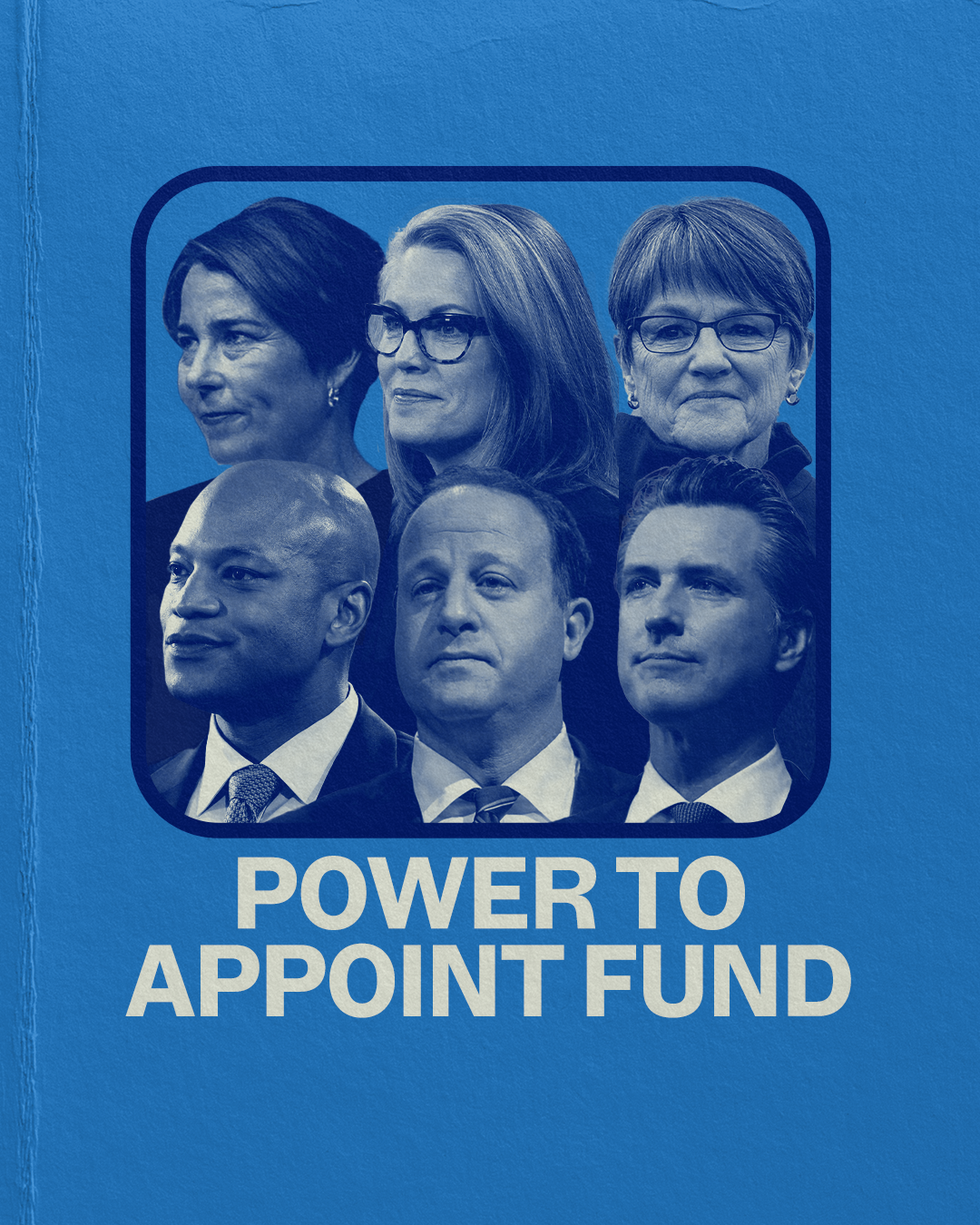
Can you donate now to join our fight?
We just launched the Power to Appoint Fund to highlight the important role Dem Govs play to ensure integrity in our country’s judicial process and protect fundamental freedoms. Your support will ensure we can make crucial investments in key states and protect our democracy. Please don’t wait: rush your gift to elect Democratic governors! >>>
DGA Hosts Governors & Experts for a Discussion on Jobs, the Economy and Climate Change
WASHINGTON, DC – Today at the Newseum, the Democratic Governors Association hosted policy panels for governors to hear from policy experts, CEOs, business leaders and innovators on job creation, economic growth, advanced energy technology and climate change. These discussions allow governors and leaders to ask questions and have a thoughtful dialogue on the best practices to create jobs in governors’ home states, grow and protect the middle class and the impact climate change has for the future of the country.
Tom Steyer, President of NextGen Climate Action, hosted a panel entitled, “Taking Action on Climate Change and Protecting American Prosperity,” where issues ranging from greenhouse gases, to renewable energy, to disaster preparedness were discussed. The panel discussion featured Vermont Governor and DGA Chair Peter Shumlin, New Hampshire Governor Maggie Hassan, Washington Governor Jay Inslee, Maryland Governor Martin O’Malley, and Connecticut Governor Dan Malloy.
“Climate change is the pressing issue of our generation, and it will not be solved overnight,” said Tom Steyer. “Partnerships like the Regional Greenhouse Gas Initiative are the model for success—with states leveraging strong political and private sector engagement to promote sustainability and protect the prosperity of the region—but there is still more to do. As today’s panel demonstrated, now is the time when governors across the country must join together and address this issue head-on.”
“Climate change imperils our environment, our economy, and our very way of life,” said Governor Peter Shumlin. “Today we discussed the cost of climate change, from the devastation caused by more frequent storms, to the warming of our environment causing significant changes to our forests and rivers. We must reduce pollution from power plants, some of the largest emitters of greenhouse gases and invest in efficiency programs to support clean, renewable energy. As we move toward energy efficiency we bring in new businesses, support local economies and create new jobs. Through these efforts we can improve the economy and protect our environment.”
“There is no challenge greater for us today than addressing climate change,” said Governor Jay Inslee. “It is clear that we face grave danger if we don’t act. But there is also incredible opportunity for economic growth and job creation in the cutting edge technology and innovation that will help us lead the world in fighting climate change. Now is the time to act.”
“Maryland is one of the most vulnerable states in the country to the impact of sea-level rise and we know that climate disruption is real,” said Governor Martin O’Malley. “We should use the prospect of a carbon constrained world as the means to invent a more prosperous future and to drive innovation, technological industry expansion and create jobs.”
Democratic governors are already taking significant action in this area. In the Northeast and Mid-Atlantic, the nine-state Regional Greenhouse Gas Initiative (RGGI) has helped reduce emissions from power plants by more than 30 percent since 2008. The RGGI is the first market-based regulatory program in the United States to reduce greenhouse gas emissions and is a cooperative effort among Connecticut, Delaware, Maine, Maryland, Massachusetts, New Hampshire, New York, Rhode Island, and Vermont to cap and reduce CO2 emissions from the power sector.
In October 2013 Governor Inslee joined with Governor Brown and Governor Kitzhaber, and the BC Premier, to announce the Pacific Coast Action Plan on Climate and Energy, committing their governments and region to a comprehensive and far-reaching strategic alignment to address climate change and promote clean energy. The agreement calls for each of the jurisdictions to work collaboratively as they strive to reduce carbon pollution, promote for alternative fuels, electric vehicles, renewable energy and energy efficiency, encourage climate resilient infrastructure, and increase ocean acidification research, among other policies. The leaders agreed that all four jurisdictions will account for the costs of carbon pollution and that, where possible, “link programs for consistency and predictability and to expand opportunities to grow the region’s low-carbon economy.”
In the wake of recent major weather events that have strained state budgets, Democratic governors are addressing disaster preparedness and are implementing strategies that will transform America’s infrastructure, transportation networks, energy supply, coastal protection, weather warning system and emergency management to better protect their constituents from future extreme weather which can often be events linked to climate change.
###

